Seeing your grass turn brown can be disheartening, especially if you've put in a lot of effort and time to ensure it stays healthy and green. When this happens, it can be caused by various reasons, one of the most common being dehydration. Other reasons that can cause your lawn in Michigan to turn brown include over-fertilization, fungal diseases, and lawn insects. Knowing why your green grass turned brown is crucial to helping it restore its pristine state.
Dehydration can cause your lawn to turn brown.
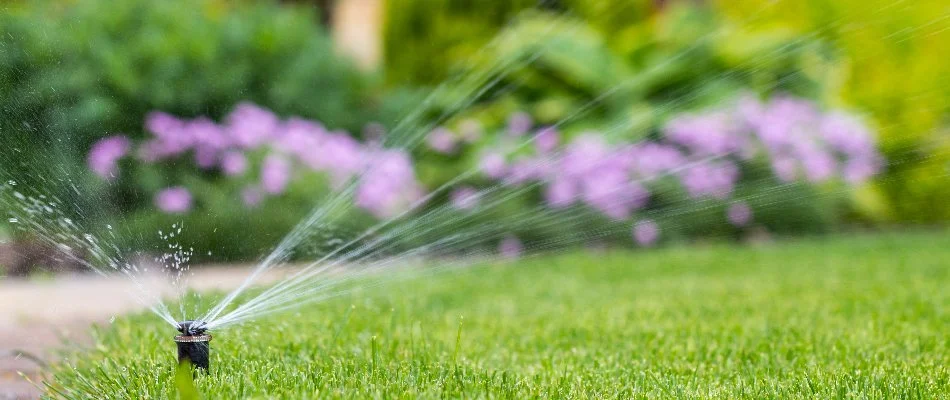
Water is a crucial part of maintaining a healthy lawn. However, hot and dry conditions, especially during summer, plus inadequate watering, can cause it to suffer from dehydration. Without enough water, your grass will have trouble staying green and growing upright. Dehydration can cause it to turn brown and look weak and unappealing. What's more, it results in the grass blades curling over, long-lasting imprints after stepping on it, and slower-than-usual growth. If you notice any of these signs, you'll want to water it immediately and see whether that improves its brown, lackluster appearance.
A properly functioning irrigation system helps ensure your grass receives enough water to prevent dehydration.
Your lawn can turn brown due to over-fertilization.
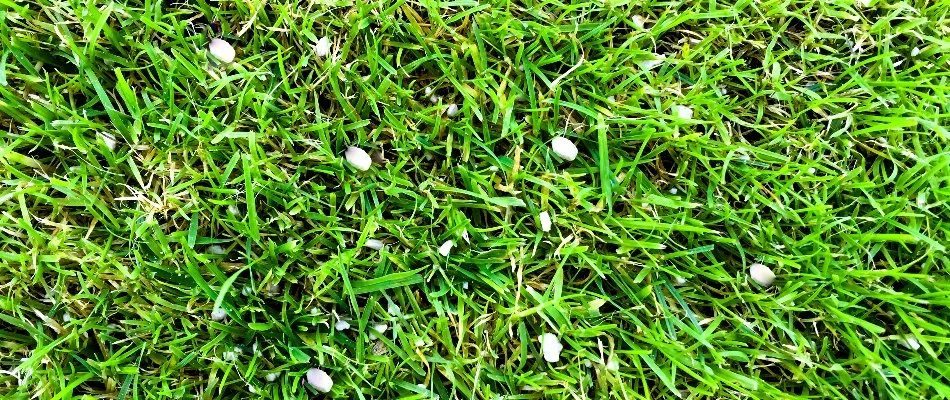
Fertilizing your lawn is one of the best ways to keep it in tip-top health, as these treatments contain the essential nutrients it needs to thrive. However, too much of a good thing can lead to less-than-ideal results. For example, over-fertilization can cause fertilizer burn. This happens when there's excess salt in the soil from the treatments, which takes away moisture from your grass, causing it to wilt and look scorched and brown. Another common sign that your lawn is over-fertilized is if it grows slowly or not at all, even after you've just applied the treatment.
Turf diseases are a common culprit for brown grass.
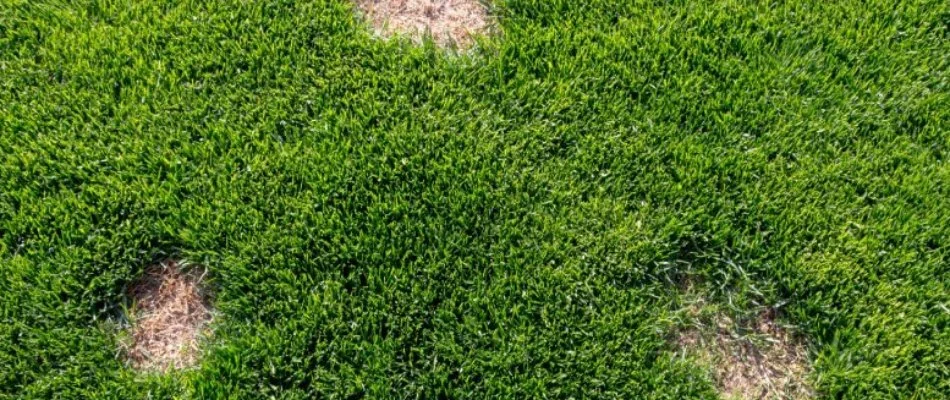
Another common culprit behind the browning of your grass is lawn disease. Various fungal diseases can affect your turf, many of which can be characterized by discolored patches of grass. Here are some common ones that can impact your lawn:
- Brown Patch: As its name implies, this turf disease creates patches of brown grass ranging from as little as a few inches to up to several feet in diameter.
- Leaf Spot: This disease results in tiny lesions on your turf that eventually grow into large patches of brown or black spots.
- Fairy Ring: If you see circular spots on your lawn that have brown grass inside a darker green ring, it might be this lawn disease.
- Dollar Spot: This lawn disease can be characterized by dollar coin-sized brown or tan spots on the grass blades.
Your grass can turn brown if it is infested with lawn insects.
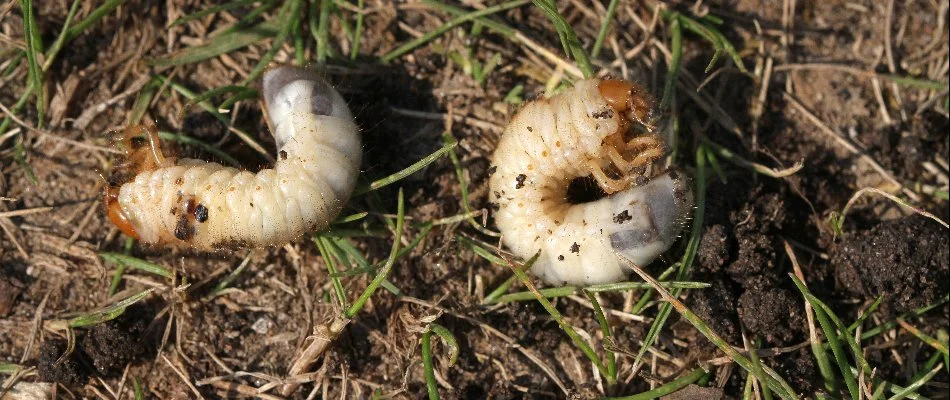
If you have brown grass, lawn insects may be causing it. Grubs are one of the most destructive pests that can wreak havoc on your turf. They feed on the roots of your grass, causing it to become unattached to the soil and eventually turn brown, as it can no longer absorb nutrients. Chinch bugs can also be to blame. They have piercing mouthparts that they use to suck out juices from the grass blades and inject a toxin that causes it to become dehydrated, turn brown, and eventually die.
Call us today to sign up for our lawn care services!
If you want lush, green grass on your property, you've come to the right place. Our team at Outdoor Expressions Landscaping offers top-quality lawn care and irrigation services to ensure your grass remains in excellent health throughout the growing season. We can keep your irrigation system running at peak efficiency via our irrigation services, so you can rest assured that your lawn will receive enough water to thrive. We also offer fertilization, lawn disease control, and grub control services to keep your lawn growing strong and free of damage-causing infections and infestations.
We offer these services to commercial and residential properties, as well as HOAs, in East Lansing, Okemos, Haslett, MI, and nearby areas. Call us today at (517) 333-7999 to sign up for our services.

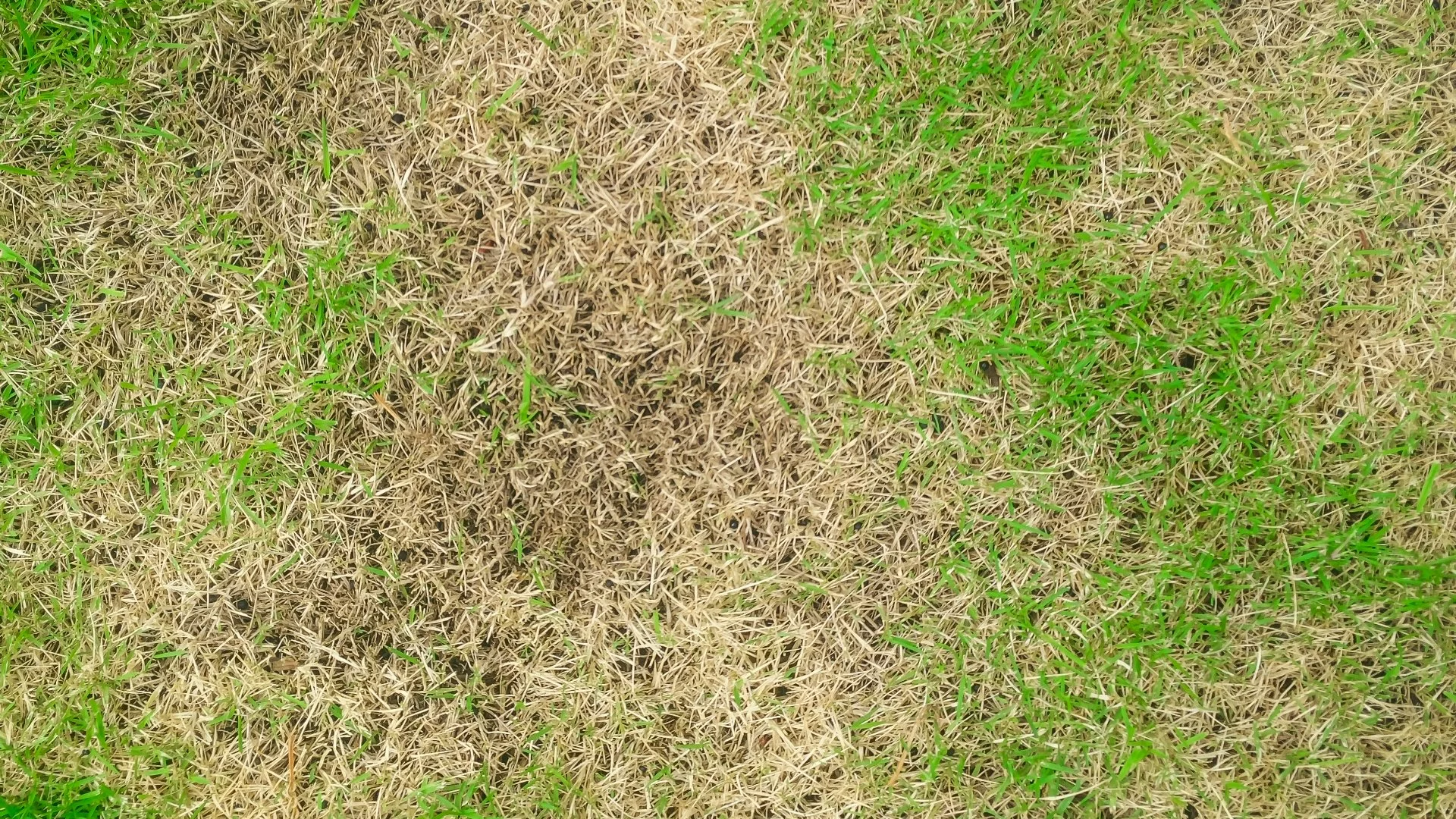


Comments (0)
Thanks for your comment!
Thanks for your feedback! Your comments have been successfully submitted! Please note, all comments require admin approval prior to display.
Error submitting comment!
There is a problem with your comment, please see below and try again.